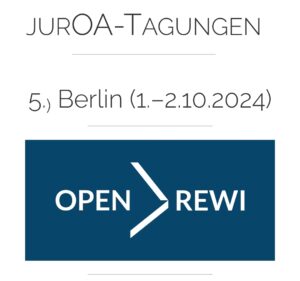Before the Storm
The Verfassungsblog editorial is back from the summer break. Let’s not give you the wrong impression though: Whatever has been going on here over the past few weeks, calling it a break would be misleading. Sommerloch? More like a passing wisp of cloud in the searing blue summer sky, both in terms of the topics at hand and the sheer volume of texts received and published. The Thuringia team has been tirelessly active all summer, giving lectures, conducting workshops, and giving interviews. On Monday, we launched the blog symposium “Whom It Affects: The AfD’s Notion of the “People” and Scenarios of Discrimination”, which reconstructs what an authoritarian-populist takeover would concretely mean from the perspective of those affected – a key output of the project (more on that below). On Tuesday, we spent an entire day at a conference we co-organised in Weimar, intensely discussing the developed scenarios with nearly 100 representatives of Thuringia’s civil society. On Wednesday, I was a guest on Austrian public radio for an hour – Austria also faces an election of immense importance in September! – to discuss the “breakthrough of the AfD” with Philipp Blom. Thursday, my book “Die verwundbare Demokratie” has been ranked second on the current non-fiction best-book-of-the-month list (and it shares this spot with our long-time author Samira Akbarian, which makes me particularly happy). And today, Friday, the book launch is taking place at the sold-out Berliner Ensemble on Schiffbauerdamm.
On Saturday, we’ll take a deep breath. And on Sunday, the elections in Saxony and Thuringia will take place.
Whichever way the election will go, it is likely that Björn Höcke will emerge from it with some kind of triumphant gesture. His AfD is almost certain to become the largest group in the next Thuringian state parliament. And since this comes with the right to nominate the next president of the state parliament, it will be very interesting to observe how the constituent session of the parliament unfolds – possibly with an AfD MP as the oldest member presiding. If the AfD’s candidate is elected, a significant state office will fall into the hands of the AfD, which they could abuse in the most egregious way without having to take responsibility for any difficult government decisions. If their candidate is not elected, the opponents of the AfD will break with a long-standing parliamentary convention, which is meant to keep this office depoliticised: The president of the state parliament and the parliamentary administration under her/him are supposed to facilitate the productive conflict between majority and minority, not take part in it. It’s not intended that the majority should submit this office to its will to impose it on the minority. The idea that all democratic institutions are political, mere tools for acquiring and maintaining power in the hands of those who control them, is the premise of authoritarian populists. Will the next Thuringian state parliament president now be determined by majority instead of convention? Make my day, says the AfD. (Needless to say, I still consider this the lesser evil.) Whatever the outcome: Höcke triumphs. This is what makes the authoritarian-populist strategy authoritarian: Its goal is to make it impossible to lose.
The identitarian concept of the people is central to this goal. The idea of the people, from whom all state power emanates, as something identical with itself, as something that is rooted in nature and history, a given to all law or politics, is the key that opens the door to the authoritarian-populist abuse of the constitution. By this logic, the institutions and procedures of democracy are decoupled from their purpose of keeping the political struggle between the free and equal in a pluralistic society possible and open, thus constituting the demos anew every day. The demos, after all, is right there already – you just have to point to it. The institutions and procedures of democracy are not needed to constitute it. They are mere instruments of power, which those who possess them can use to ensure they never have to give them up. They are simply a mirror in which those who claim to be the “true people” can recognise their reflection and reaffirm their identity. If this doesn’t happen, then something is wrong with the mirror. It must be shattered and replaced.
I don’t believe that CDU chairman Friedrich Merz, for all his faults, has the same authoritarian goal as Björn Höcke. (His CSU rival Markus Söder? Not so sure.) I have no reason to suspect that he deliberately aims to establish a regime where he can no longer be voted out. But that’s about all I can say in his and his party’s favour after recent experiences.
++++++++++Advertisement++++++++

Einladung zur 5. jurOA-Tagung: Die Fachtagung für Open Access und Open Science in der Rechtswissenschaft findet am 1. und 2. Oktober 2024 in Berlin statt. Die Tagungsteilnahme ist kostenlos sowohl vor Ort als auch virtuell möglich. Neben Vorträgen zu Fragen der Öffnung der Rechtswissenschaft bietet die Tagung auch Einblick in mehrere konkrete offene Projekte aus der Rechtswissenschaft wie dem Projekt OZUG, in dem zur Zeit der erste offen lizenzierte Grundgesetzkommentar verfasst wird.
Weitere Informationen finden Sie hier.
++++++++++++++++++++++++
In Germany, as in most places around the world in these times of crisis, there is a large and growing demand for identitarian concepts and ideas. A democratic party is democratic when it opposes this demand. If it doesn’t, but regards it as an invitation to bring products of their own to the market to satisfy it, then it is on a path that leads to authoritarianism, whether that is its goal or not. On this path, it inevitably encounters institutions that keep the democratic conflict between the free and equal in a pluralistic society open, and thus disturb the identitarian mirror image, placing obstacles in its way. If it pushes these obstacles aside, defying the law and bending the constitution, then there is no way back. In the end, it will either face self-destruction (see the Tories in the UK) or fully adopt the authoritarian goal (see the Republican Party in the US).
It seems that the CDU has chosen to embark on this path. How the other parties reacted to the stabbing attack in Solingen is hardly any better. Instead of confronting the issue, they blissfully try to climb aboard the CDU bandwagon, or lie down on the floor, hoping that if they are used by the entire republic as a doormat, at least they won’t be stomped on too hard. The party that bears “left” in its name is for the most part running headlong towards authoritarian populism. The situation is truly desperate.
All the more important, then, to keep your head up. You’re probably as tired of the words “civil society” as the next guy, but it can’t be helped: It’s the key. Organise! Donate time and money! Stand in solidarity with those who will be the first to be affected! There’s no lack of things that can be done right now.
*
There’s more to the world than law and politics. And you might sometimes need a breather from constitutional law, too. That’s why we are now introducing an “Editor’s Pick”, between the editorial and our weekly review – a cultural gem from our editorial team.
Editor’s Pick
by MAXIM BÖNNEMANN

*
The Summer on Verfassungsblog
… summarised by EVA MARIA BREDLER
Usually, August means summer lull – time to relax, grumble about the heat before gearing up for the Berlin winter, and finally turn to the ever-growing stack of books that have piled up over the year.
This summer, however, gave us no rest; our inbox was always full. This means work for us but also plenty of good reads for you. If you took a (well-deserved) summer break from Verfassungsblog, we have compiled the ten most-read articles of the summer for you here (sorted by topic, not by clicks).
The Israel-Gaza war remained a key topic. On 19 July 2024, the International Court of Justice issued an advisory opinion declaring the Israeli occupation of the Palestinian territories – including Gaza – illegal. MATTHIAS GOLDMANN (GER) explains the arguments and consequences of the opinion. ALINA FUNK and AMIR BUSTAMI (GER) show what the opinion means for the (economic) right to self-determination of the Palestinians. And if you’d like to read more: We are launching a whole blog symposium on the advisory opinion in September!
The International Criminal Court also entered the fray in this war, with its chief prosecutor filing requests for arrest warrants in May. Many states have since submitted their observations to the ICC (as “friends of the court”), including Germany on August 6. In its submission, the Federal Republic argues that Israel should first be given the opportunity to conduct its own investigations (a principle called “complementarity”). KAI AMBOS (GER) criticizes the amicus curiae procedure as lacking transparency and dissects the German objections. The submission reveals strong, almost unconditional support for Israel, which –very much in line with the so-called German “Staatsräson” – suggests a primacy of politics over law (a simultaneously published English version of the text is available here).
Meanwhile, Japan’s judiciary seems to be undergoing a remarkable transformation. Once described as the “most conservative constitutional court in the world”, the Constitutional Court (as well as the ordinary courts) is now making increasingly progressive decisions, especially regarding the rights of same-sex couples. Does this only look like change from the outside or is an actual shift happening? MASAHIKO KINOSHITA, GUY BALDWIN, and AYAKO HATANO (EN) have taken a closer look at the Japanese jurisprudence.
In Germany, Federal Interior Minister Nancy Faeser’s ban of the far-right magazine Compact on July 16 caused quite a stir. Because press law does not allow such a move, the Ministry of the Interior chose the (roundabout) way through association law and banned the publishing association. Where there is no publisher, there is no magazine. But is that possible? PAULA RHEIN-FISCHER (GER) says no. Association law cannot justify targeted bans on media products; press law takes precedence over association law. SANDRA LUKOSEK (GER), on the other hand, assures that nothing is new here. The ban of the COMPACT-magazine association follows a longstanding practice in association law.
Another hot topic was the Federal Constitutional Court’s ruling on the long-brewing German electoral reform. The Bundestag has been expanding due to Germany’s unique system of “overhang” and “compensation” mandates, which attempt to even out our creative combination of proportional representation with direct mandates. The reform aimed to tame the ever-growing Bundestag, introducing a strict 5-percent threshold among other measures. However, the Federal Constitutional Court has now struck down this threshold as unconstitutional. FABIAN MICHL and JOHANNA MITTROP (GER) explain the ruling and offer a clear, insightful overview.
++++++++++Advertisement++++++++

Wie kann eine autoritär-populistische Machtübernahme aussehen?
Gemeinsam mit hauseins hat das Thüringen-Projekt einen Podcast für die Bundeszentrale für politische Bildung produziert, in dem wir die Möglichkeiten einer Regierung in Thüringen durchspielen, sich von rechtsstaatlicher Kontrolle und demokratischem Wettbewerb zu befreien. Welche Abwehrmechanismen hat der Rechtsstaat in Thüringen? Welche Macht haben demokratische Kräfte, um gemeinsam die Demokratie zu verteidigen?
++++++++++++++++++++++++
Cannabis legalisation had also been brewing for a long time. Now that it’s here, it’s creating some curious conundrums for Bavaria: At Oktoberfest, where revellers of all ages are mingling, the challenge arises if they are enjoying their cannabis “in the immediate presence” of minors, potentially violating the Cannabis Consumption Act. Bavaria was quick to enact special regulation (the “Bavarian Cannabis Consequence Limitation Act”), adding further state-level consumption prohibitions to the federal ones. SIMON PSCHORR (GER) examines whether Bavaria’s special legal brew holds water.
After the knife attack in Solingen, calls for deportations are once again growing louder. In a widely reported decision, the Higher Administrative Court of North Rhine-Westphalia had already ruled in July that there is no longer a serious, individual risk to life in Syria due to the war, possibly allowing for deportations. VALENTIN FENEBERG and PAUL PETERSSON (GER) can hardly detect anything new in the decision regarding the situation in Syria and do not understand the buzz. They do, however, detect a thin factual basis for the court’s ruling.
Speaking of thin factual bases: The CDU/CSU parliamentary group wants to extend the offense of murder in Section 211 of the German Criminal Code to encompass killing by “taking advantage of physical superiority”. This is meant to respond to intimate partner killings, particularly to protect women. Well-intentioned, says LENA GMELIN (GER), but not well done. The amendment may lead to contradictory rulings, and in any case, the real issue with intimate partner killings is not about physical strength but about the perpetrators’ patriarchal possessiveness and power dynamics, which the courts remain blind to (even with an amended Section 211).
And to send you straight from summer into autumn reading: KAI AMBOS (GER) has reviewed Maximilian Pichl’s book “Law statt Order. Der Kampf um den Rechtsstaat” (2024) for you. Ambos is sympathetic to Pichl’s intention of freeing the notion of the rule of law from its burden to merely legitimize security policy. However, Ambos notes that the book sometimes veers from activism into the realm of the unscientific.
Finally, we don’t want to keep our summer’s symposia from you: on Media Freedom and Pluralism, on Extraterritorial State Obligations in Migration Contexts, and on the notion Never Again: The Holocaust, Trauma and Its Effect on Constitutional and International Law. This week, we launched the symposium “Whom it Affects: AfD’s Notion of the “People” and Scenarios of Discriminiation” (GER). It’s worth a read since, unfortunately, summer is coming to an end, and we have to brace ourselves not only for a dreary Berlin but also for a troubling election season.
*
That’s all for this week. Take care and all the best!
Yours,
Verfassungsblog
If you would like to receive the weekly editorial as an email, you can subscribe here.



